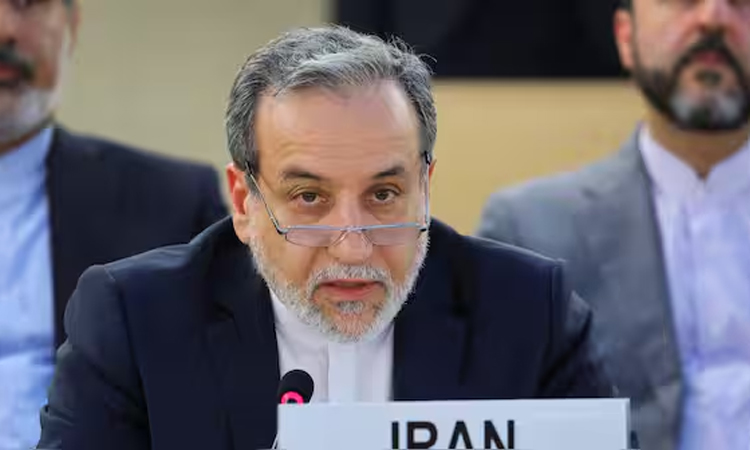News Flash

TEHRAN, Nov 16, 2025 (BSS/AFP) - Iranian Foreign Minister Abbas Araghchi said Sunday that the country had no undeclared uranium enrichment sites and that all of its facilities were monitored by the UN's nuclear watchdog.
The assertion came after US media outlets, including the Washington Post and the New York Times, reported that Iran had accelerated construction at a secret underground nuclear site called "Pickaxe Mountain", or Kuh-e Kolang, near its Natanz facility.
"There's no undeclared nuclear enrichment facility in Iran; all of our facilities are under the safeguard and monitoring of the agency," Araghchi said during a forum in Tehran.
He added there was "no enrichment" taking place at present because the sites were damaged in the recent war with Israel.
There has been no mention of the Pickaxe Mountain site by officials or any Iranian media.
In mid-June, Israel launched an unprecedented bombing campaign against Iran, triggering a 12-day war during which the US briefly joined with strikes on Iranian nuclear sites.
The war, which prompted Iranian missile and drone attacks on Israel, derailed nuclear talks between Tehran and Washington that had begun in April.
During those talks the two sides were at odds over Iran's right to enrich uranium, which Araghchi insisted on Sunday was "undeniable" and "inalienable".
Iran has said its nuclear facilities were severely damaged in the strikes and that enriched material remained under the rubble.
Araghchi's remarks came ahead of a Board of Governors meeting by the International Atomic Energy Agency (IAEA) meeting slated for later this week.
- 'Fundamental review' -
During Sunday's forum in Tehran, Iranian officials warned the UN body against adopting an anti-Iran resolution.
"In case of a resolution, Iran will consider a review of its relations with the IAEA and will conduct a fundamental review," said Iran's deputy foreign minister Kazem Gharibabadi.
In the aftermath of the war, Tehran suspended its cooperation with the IAEA and restricted the watchdog's inspectors from accessing the bombed sites, accusing it of bias and failing to condemn the attacks.
In September, Iran and the IAEA agreed on a new cooperation framework, but weeks later Tehran deemed it invalid after Britain, France and Germany triggered the return of UN sanctions that had been lifted under a 2015 nuclear deal.
That deal officially expired in October, but was effectively torpedoed years earlier after Washington withdrew from it during President Donald Trump's first term.
A ceasefire between Iran and Israel has been in place since June 24, but both Israel and the United States have threatened new strikes if Tehran revives its nuclear programme.
Iran's Atomic Energy Organization chief Mohammad Eslami called on the IAEA Sunday "to clarify its role and responsibility in the context of a military attack and damage to facilities, so that then we can sit for negotiations on this basis."
He added that Iran's situation after the war has "changed" and the threat was "still active".